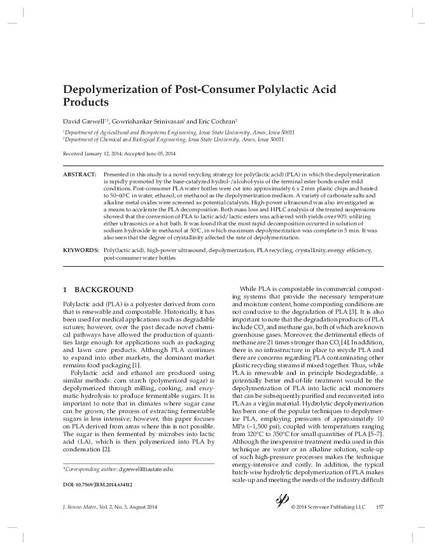
Presented in this study is a novel recycling strategy for poly(lactic acid) (PLA) in which the depolymerization is rapidly promoted by the base–catalyzed hydrol–/alcohol–ysis of the terminal ester bonds under mild conditions. Post–consumer PLA water bottles were cut into approximately 6 × 2 mm plastic chips and heated to 50–60×C in water, ethanol, or methanol as the depolymerization medium. A variety of carbonate salts and alkaline metal oxides were screened as potential catalysts. High–power ultrasound was also investigated as a means to accelerate the PLA decomposition. Both mass loss and HPLC analysis of the treated suspensions showed that the conversion of PLA to lactic acid/lactic esters was achieved with yields over 90% utilizing either ultrasonics or a hot bath. It was found that the most rapid decomposition occurred in solution of sodium hydroxide in methanol at 50oC, in which maximum depolymerization was complete in 5 min. It was also seen that the degree of crystallinity affected the rate of depolymerization.
Available at: http://works.bepress.com/eric_cochran/23/

This article is published as Grewell, David, Gowrishankar Srinivasan, and Eric Cochran. "Depolymerization of Post-Consumer Polylactic Acid Products." Journal of Renewable Materials 2, no. 3 (2014): 157-165. DOI: 10.7569/JRM.2014.634112. Posted with permission.